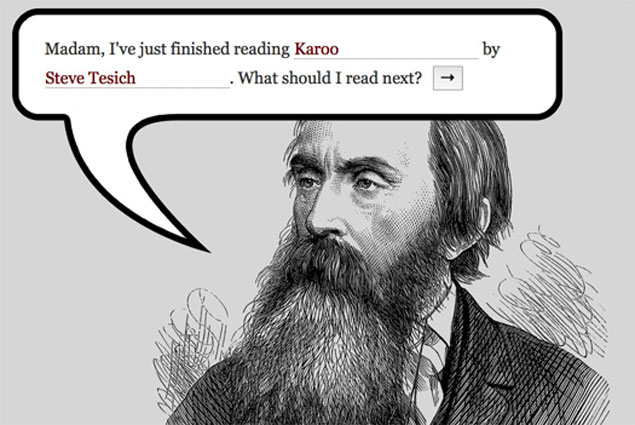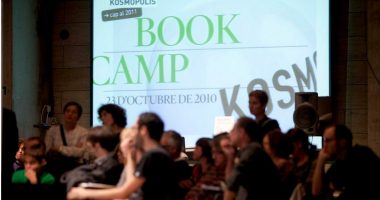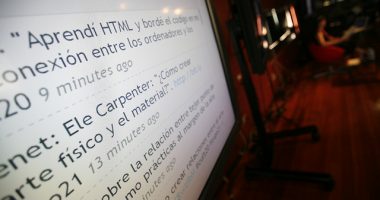
Project: bookseer.com | Authors: aptstudio.com.
«The BookCamp idea is founded on the principles of the crowd: of inclusiveness, openness and consideration. It's a cerebral jam session where the floor is open for new ideas to be discussed by people from across disciplines, generations and areas of expertise.»Sean Cranbury, BookCamp Toronto 2009 participant
One question runs through all areas of cultural production: how you can integrate the dynamics 2.0 – the digitalisation of media, the non-hierarchical exchange of knowledge, the public as the co-creator – to be an effective tool of knowledge production? More specifically, how could we optimize a process in which we are all immersed?
The progressive implementation of the “_camp” format for debating (understanding camp as a reference to the informal nature of these meetings) is one of the successful experiences of integration of philosophy 2.0 as a relational offline guideline. Its starter Tim O’Reilly has described it as “the wikipedia conference.” These events that arose in the hacker context and are based on sharing ideas and technological innovations in a dynamic and participatory environment are characterized by the fact that it is public generated content. These experiences generally last one day and participants generate a program by registering their proposals on a wiki, a website editable by any user. These proposals are called unconferences and are based on fifteen-minute short presentations that end up in a symposium, therefore eliminating the usual separation between speakers and listeners. The aim of this format is not pre-constructed but constructive, so that content is collectively generated.
The first Foocamp took place in 2003 and was adapted in the publishing field through the Bookcamp, in Rimini in 2008. Eight Bookcamp editions have taken place in different countries through the years, and currently, Bookcamps emerge spontaneously around the world. There are few documents that show the development of unconferences: part of its philosophy includes that they should not be recorded on camera, though they can be shared through skype and twitter, because their main aim is the physical meeting of those wanting to share ideas. The BookCamp London (2009) report describes a place where there are several debates taking place simultaneously as (un) speakers equipped with various e-reading devices are placed around the tables pollinating the environment with new ideas.
It seems that the “device” – apparently more subject to technological changes that text itself -has so far been the star of these meetings. The body of the book and its digital dispersion is an issue that particularly concerns publishers, who are generally a vast majority of the speakers and sponsors of Bookcamps. The conflict of identity in publishing houses when confronted to digital publishing and desktop publishing seems to be predominant over creation in this new context. The question of how to make it profitable seems to be floating around all editions. The debate remains open.
Artists, writers and critics can bring a lot to the debate concerning the relationship between textuality, creation and environment. The reviews from Bookcamp attendants – authors and publishers- express the thrill and excitement of living through a paradigm shift. The 2.0 dynamics applied to the field of education have already produced very interesting results on a national sphere. To draw conclusions, we need a Bookcamp experience in our context. Hopefully it will be as positive as indicated by the acceleration of this genre’s mutation.



Leave a comment